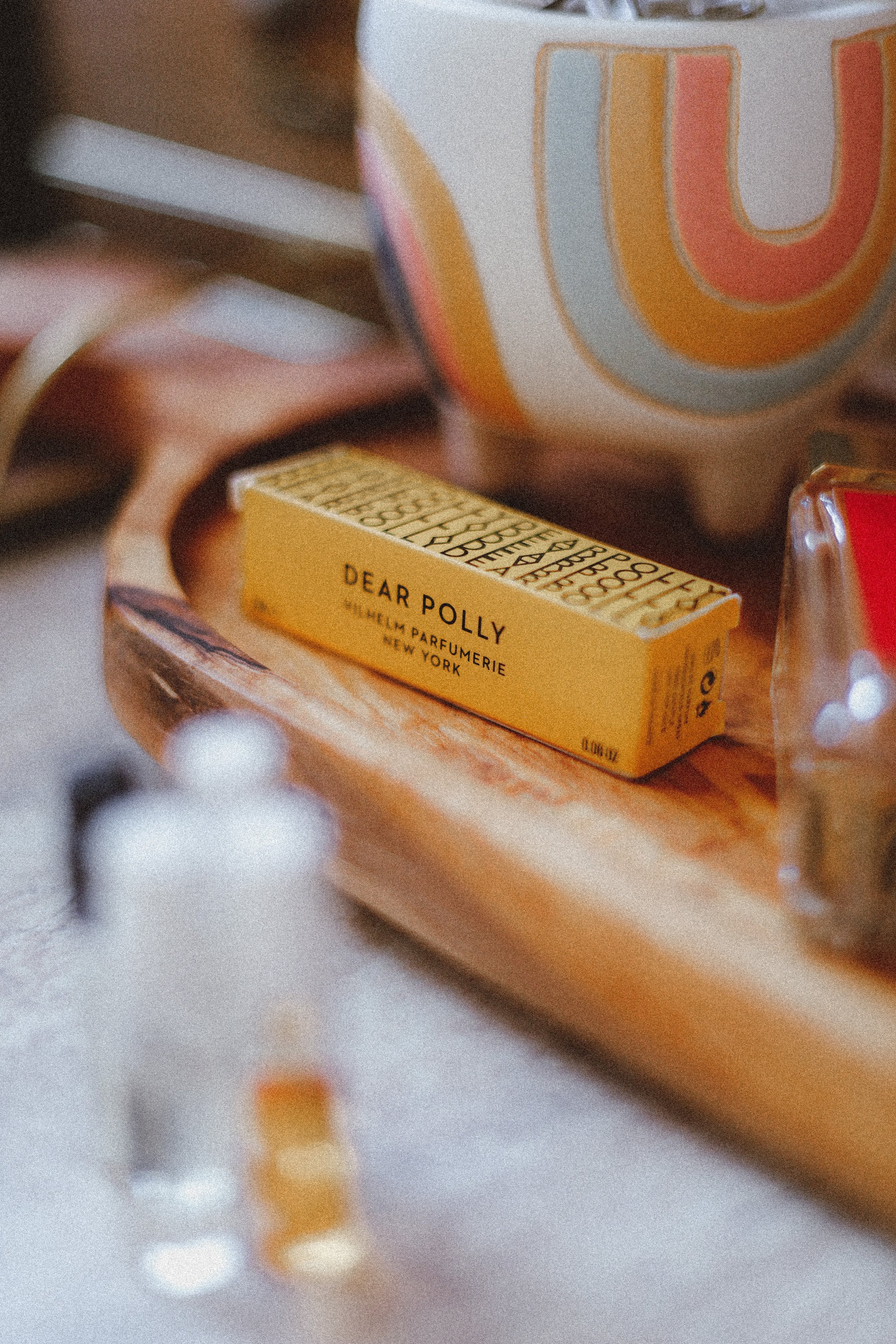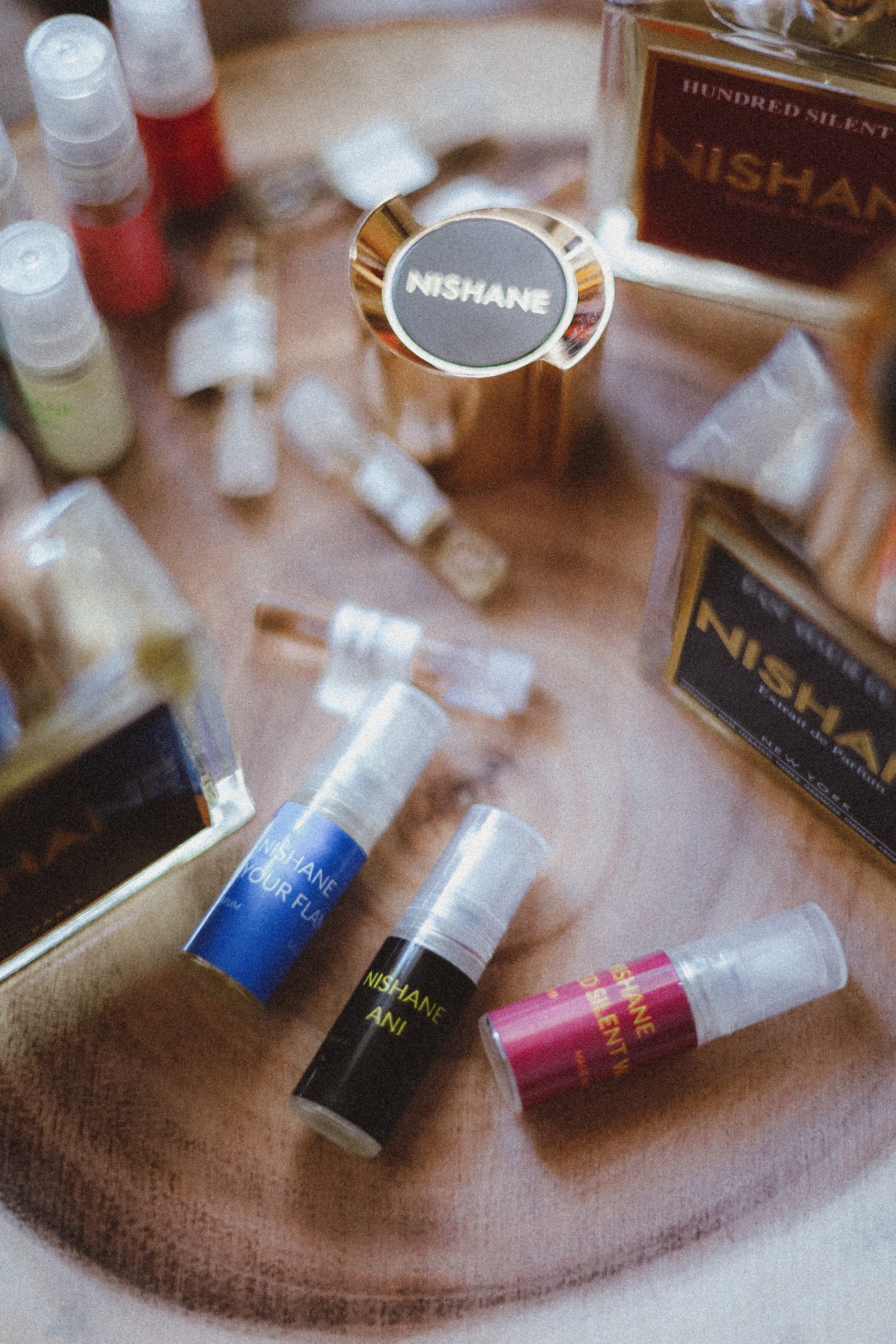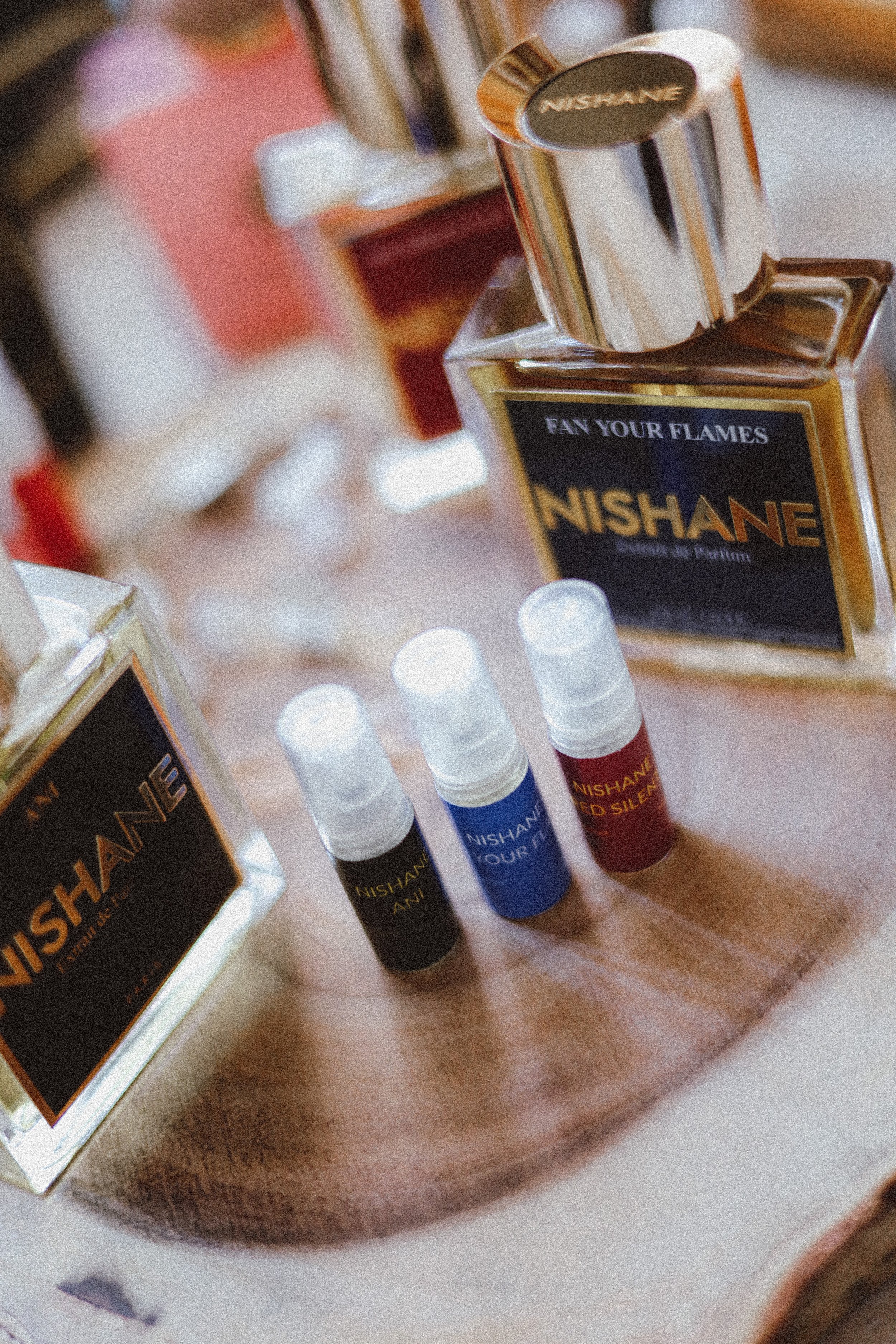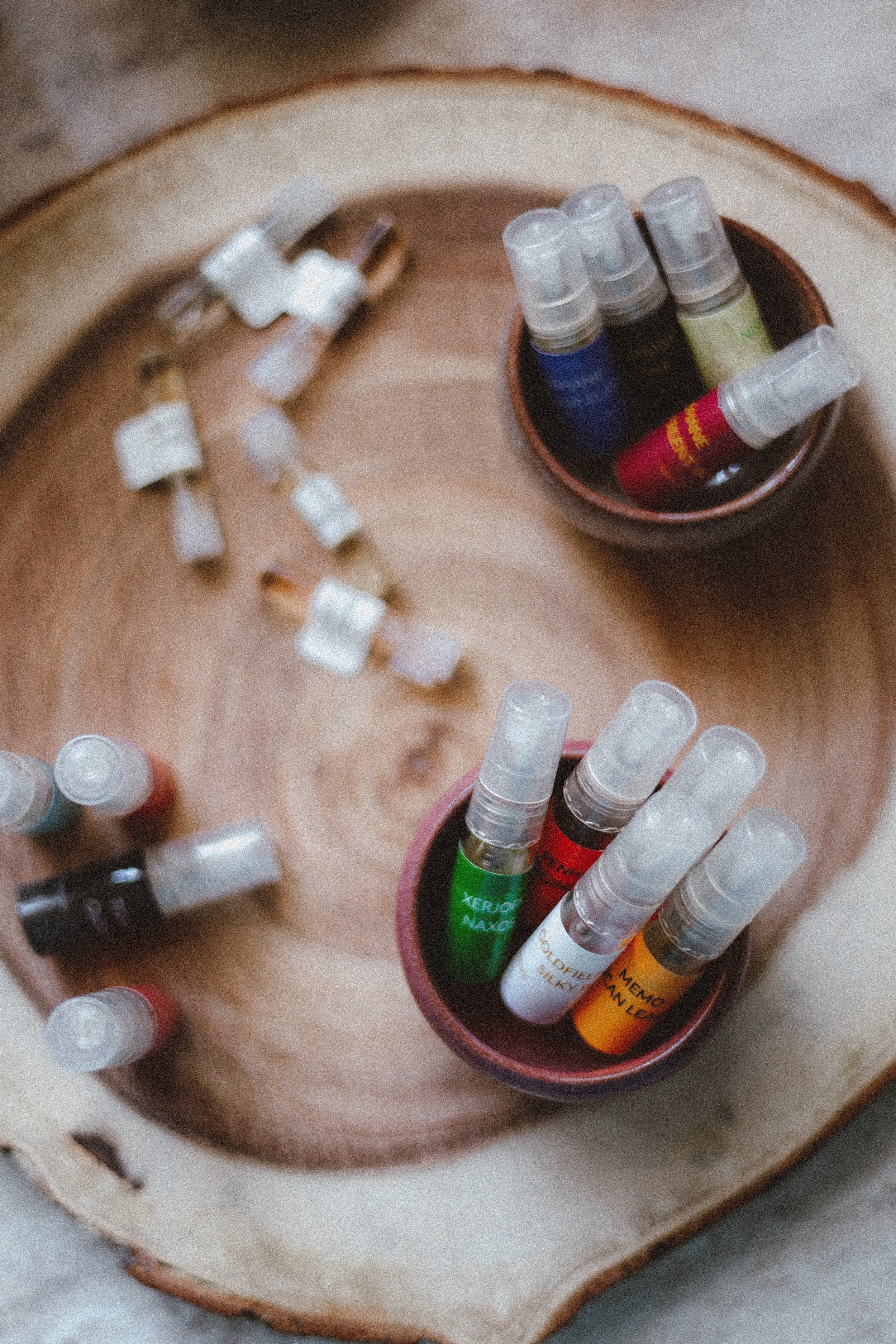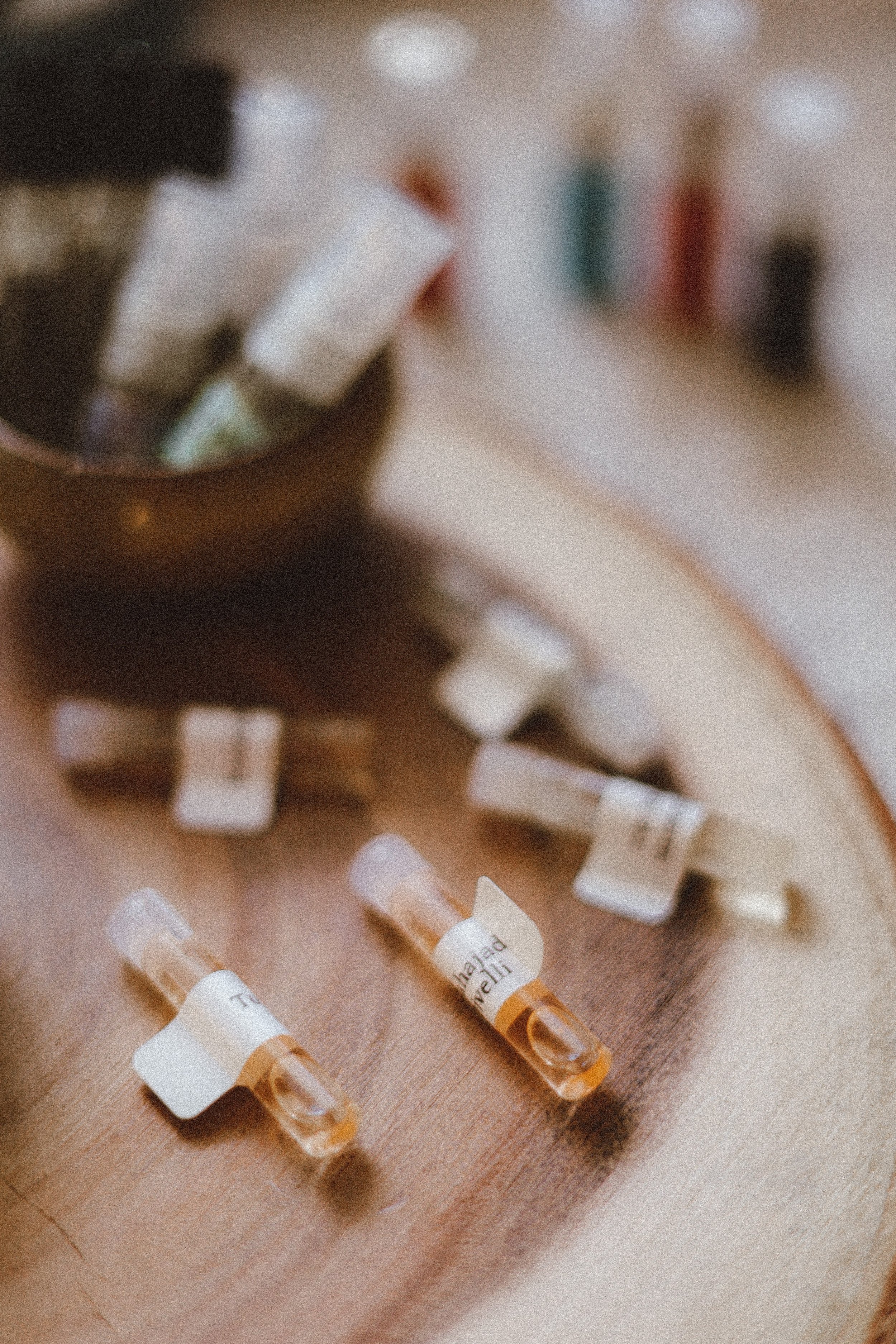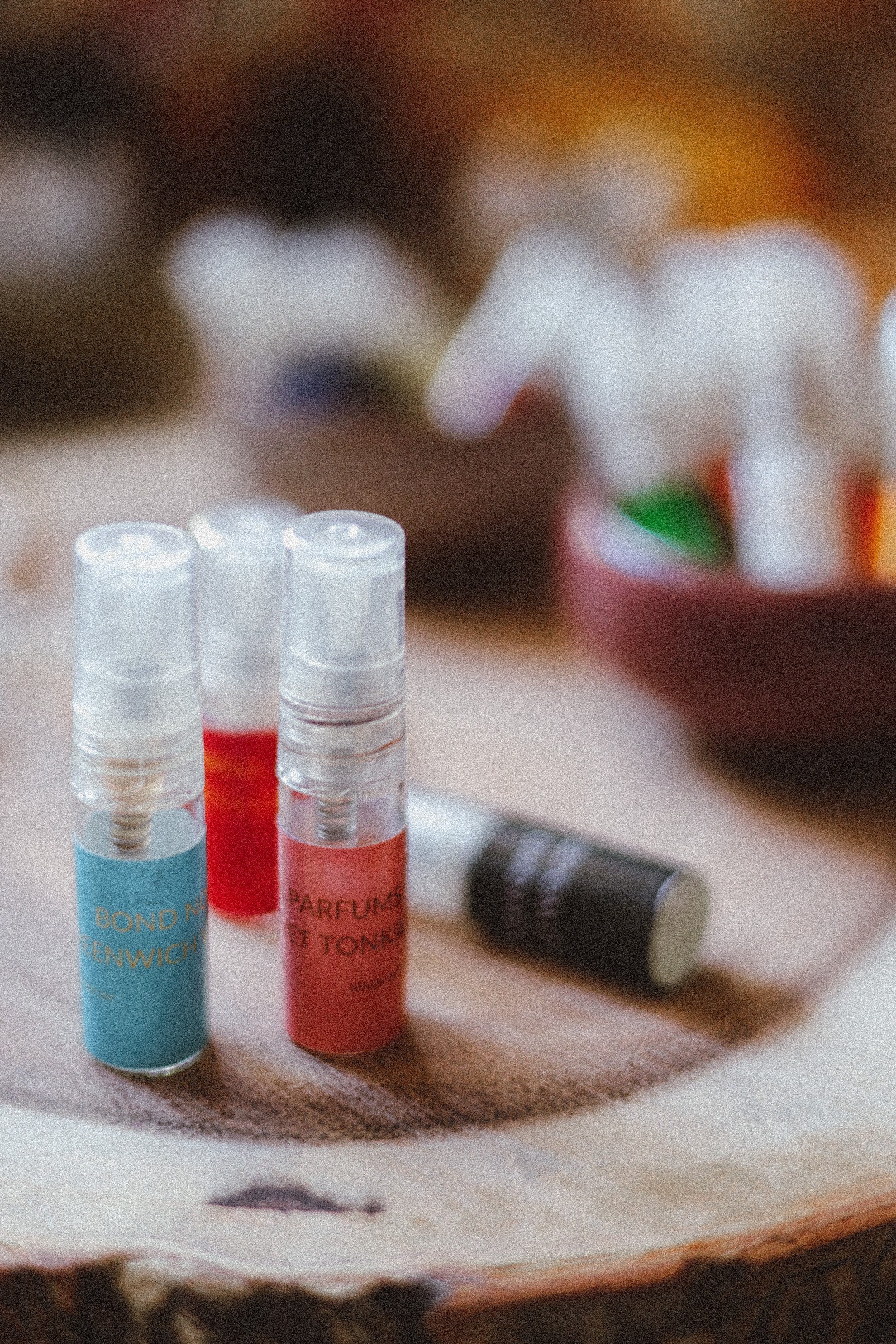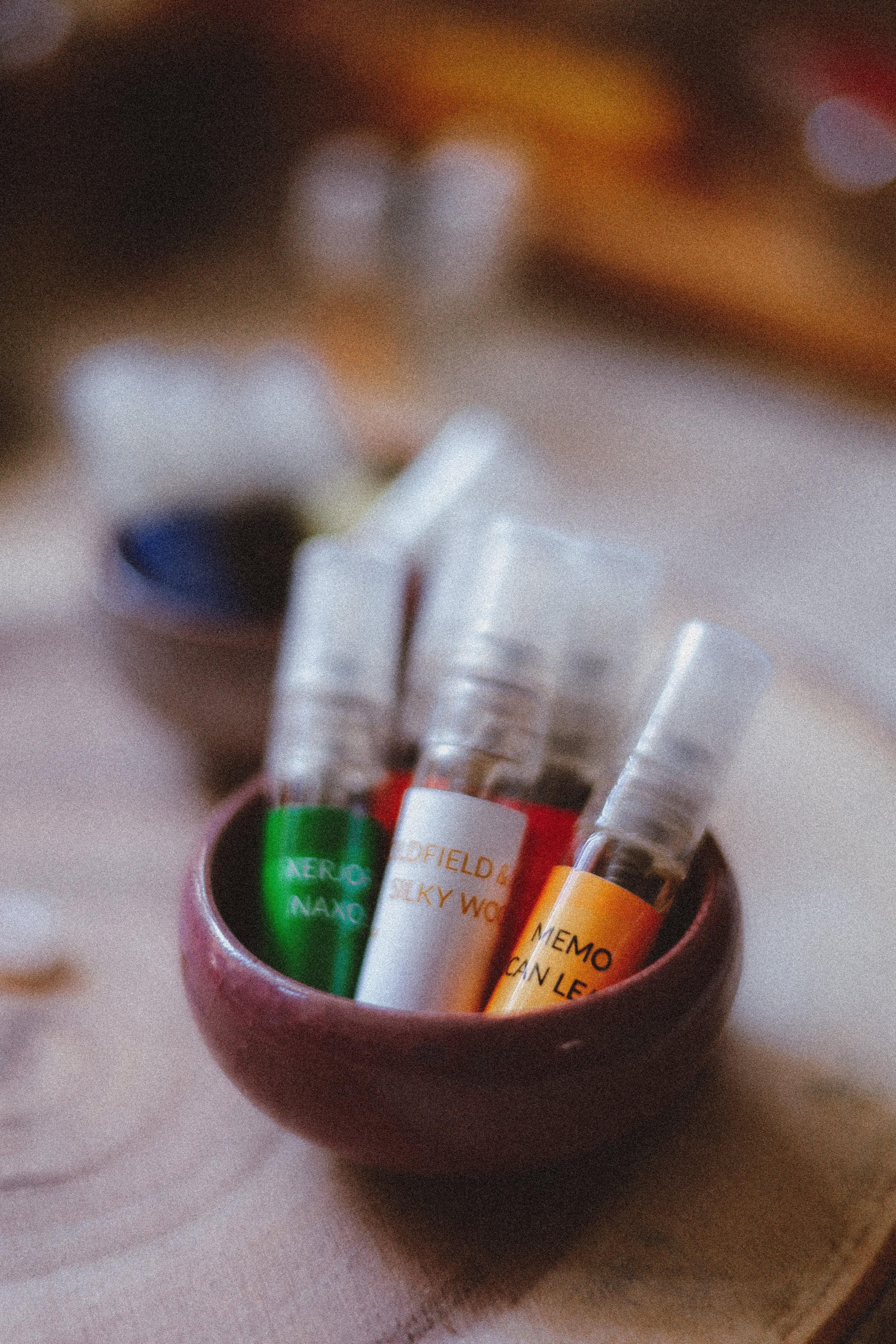Perfume Sampling 101: Skin Chemistry
Loving and learning about perfumes is a wonderful journey that usually starts with a jarring realization - perfumes smell different on different people.
Many seasoned perfume lovers probably still remember their frustration at the beginning of their own journey, learning that the smell of a much-coveted perfume on a paper strip is very different when that same perfume lands on one's own skin.
So, for the baby perfume lovers out there, here is what you need to know about the importance of perfume sampling and skin chemistry.
Picture your favorite perfume as an elixir that on its own cannot really do much: no magical or great transformative powers, nothing. However, this elixir gets activated once it touches the skin. The magic unfolds and its transformation takes place - all dependent on what your skin has to offer.
You are probably wondering right now, how could that be? You go into perfume stores and when you open a bottle of that luxurious Velvet Orchid from Tom Ford, you smell something. When you spray it on a mouillette, you smell something. Yes, that is all true. However, whatever you smell on that paper strip may drastically or slightly vary from how it will ultimately smell on your skin because of skin chemistry.
So, what is skin chemistry and why is it important when sampling perfumes? Skin chemistry is an overall headline for a few things including your skin’s moisture level, skin type, pheromones, diet, sweat, weather, and even environment - just to name a few.
Your skin is the largest organ of your body and it is so much more complex than what meets the eye. It is made of water, salts, fats, sugars, proteins, fibers, and, of course, hair! Is it any wonder then that your friend’s new Chanel perfume smells so amazing on her but not really on you? After all, you do not expect a dress to look a certain way on your svelte form and the same way on someone who has broader shoulders or wider hips.
So, when it comes to skin chemistry, we are not only talking about how we are all unique because our bodies are unique, we are also talking about a few specific factors that directly affect how perfumes are activated on our skin and how they end up smelling like.
It is All in the Moisture
Mark Behnke of the website Colognoisseur explains this very well. He may not agree with the use of the term “skin chemistry” but that is another blog post for another day.
Behnke explains that a lot of us have gotten into habits that leave our skin very dry. The most concerning of these habits is our shower routine. We scrub ourselves and exfoliate under a hot shower with soap or shower gels, some of which, if not all, are quite harsh for our skin. That alone can leave our skin parched! It takes time to regenerate and replace the oils that were lost in this process. Of course, Behnke is not advocating for people to forgo showering and neither are we. That is not the point being made.
The point is that we then end up using perfumes shortly after such a shower. The oil molecules in your perfume are then absorbed super quickly by the skin and some people even describe this as the skin ‘eating’ the perfume, thus resulting in the perfume smelling very differently on you than on someone, who may have done something else before applying said perfume or who may have a different shower routine.
Once the body has managed to replace the natural oils that were scrubbed off, Behnke explains, the perfume molecules will come back to the surface and that too will factor into how a perfume smells on you.
In order to avoid this from happening and to also better care for your skin, Behnke offers a fairly easy solution: moisturize. Think of your moisturizer as a primer for your perfume. It is best to use scent-free body lotions, especially in places where you know you will be wearing your perfume. If you want to be more democratic about it, feel free to use said scent-free lotion for your whole body, thereby replenishing your skin’s lost oils and getting it ready for your perfume.
You will notice a difference in how your perfume smells on you. Perhaps your perfume now smells closer to how you remember it smelling on that paper strip or when you first sniffed from its bottle; perhaps it is now smelling much better on you or it is just staying longer on your skin than before you started moisturizing.
Now, apropos moisturizing: just because you have moisturized once with a certain lotion or body butter, does not mean that your perfume will now ALWAYS smell better and last longer on you. Remember that we all have different skin types. People with dry skin may need to moisturize more or use a thicker and richer product in order to replenish and replace the body’s lost moisture. If someone with dry skin uses a subpar moisturizer, then it should not come as a surprise if the perfume does not stay on for long or smells different than someone who moisturized it adequately.
So here is a tip: know your skin type, then buy a sample vial of that perfume you have been eyeing for some time. After showering, make sure to use scent-free lotion in accordance with your skin type and apply your new perfume sample on your wrists, behind your ears, or neck. Let it all stay there for a couple of hours or a whole day and then decide whether you still love that perfume. Only then should you be buying it!
The Sweat of it All
When talking about skin chemistry and the importance of perfume sampling, it is inevitable that we talk about sweat. Our sweat is so unique to us because we all lead different lives and lifestyles. So, what are the things in our sweat that can potentially lead to perfume smelling differently on us than on our friends?
Pheromones
Firstly, we need to consider the much-talked-about but still slightly mysterious pheromones. According to the Healthline website, pheromones are chemical substances that are secreted outside of our bodies through fluids like sweat or urine. Pheromones are hormones’ cousins with the latter working internally instead of outside the body.
What does this mean for us, perfume lovers? Pheromones that are secreted by humans, especially through sweat in our erogenous areas may determine how a perfume reacts with not only the skin but the body in general.
Ever heard someone say that a scent or smell reminds them of someone they know? People have natural scents that are unique to them and these scents can be attributed to, amongst other things, pheromones. When you add a certain perfume to the mix, you are layering this perfume on top of your own scent, and depending on this mix, it can either work superbly well or not at all.
So, if you ever wondered why sweet vanilla notes work so well on your sister but not on you and why citrusy notes work best on you but not on your sister, it could all come down to pheromones.
Diet
Skin chemistry cannot be discussed without the mention of our lifestyle and diet. Ever just eaten a meal or two with so much garlic or onion and notice how days after your body ends up smelling…a bit more seasoned?
When they say that you are what you eat, they really hit the nail on its proverbial head. When we eat something wildly out of our usual diet or when we follow a specific diet for a long time, our sweat and therefore natural scent can drastically evolve.
Meat-eaters will have a completely different natural scent than vegans or vegetarians. Those who love spicy food will also smell differently than those who eat mildly seasoned or bland food. When we sweat, a reaction takes place in our skin once we decide to introduce a perfume into the mix. Some notes might end up being highlighted by the combination of your vegan-informed sweat and that favorite sugary perfume you love so much. However, some notes can also become suppressed as a result of the food that you eat.
Having said that, if you decide to switch up diets somewhere along the way, say from lots of junk food to a well-balanced diet, you will also end up noticing a transition in how your perfume smells on you. It may be gradual but it will be there. Lastly, it is worth mentioning that alcohol consumption and the way we sweat alcohol can also influence how a perfume smells on us, so please keep this in mind if you are someone who consumes alcohol regularly.
Weather
Sweat and weather - the dynamic duo. When one thinks of skin chemistry, one tends to focus only on what is going on inside our bodies or on the skin itself. However, skin chemistry, in a holistic sense, must also look at a person’s skin as it interacts with their environment, especially the weather.
It is a no-brainer that the perfume you wear can become altered by your body’s reaction to warmer or colder temperatures. For example, as your body heats up in the summer or when you are in humid locations, your skin automatically tries to cool you down as a survival mechanism. This means that your pores open and you sweat - no surprise there. The perfume on your skin will get a bit of a boost and therefore becomes more pronounced. When you sweat in hot weather, it is also possible that the evaporation of the top and middle notes take place sooner rather than later, leaving you with the base notes much earlier than expected.
If you are wearing a very citrusy perfume with apple, lemon, or bergamot notes and you happen to sweat easily and a lot, you will notice that those notes will fade sooner than they fade from your partner’s skin who does not sweat a lot despite the hot weather. If you sweat a lot in hot weather, try sampling more full-bodied perfumes with tuberose and jasmine notes as they are less affected by heat in general.
Skin pH Level
Not a lot has been written out there about the skin pH levels and how it interacts with perfume but it is an interesting premise nevertheless. Before we move any further, it is best to briefly explain pH levels. The pH is a numeric scale from 1 to 14.7 and indicates how acidic or alkaline something is. Anything below 7 is acidic and anything above that is alkaline. Our skin should be at a pH level of 4.7, meaning it is normal for our skin to be slightly acidic.
Granted, there needs to be more research about pH levels and how perfumes interact with them but the little we know about this is very interesting. It shows that skin with a lower, acidic pH allows the perfume to be absorbed better. This means that the closer your skin is to a pH level of 4.7, the better it is for your perfume as it interacts with your skin. On the other hand, skin with a more alkaline pH will find it hard to retain a scent, which can be frustrating. So, what can be done?
The Healthline website advises that we should use gentle cleansers when washing our bodies. If your cleanser has a pH level of 9 or even higher, this can be harsh to the acid mantle on your skin, thus leading to dryness, susceptibility to wrinkles or acne, and, for us perfume-lovers, less absorption of our beloved perfume, leaving us disappointed by how it ultimately smells on us.
I know, I know. It seems that finding that perfect scent is more of a quest than a simple shop purchase given the above but it is really simpler than you thought. ALWAYS buy samples first. Do not sacrifice your next mortgage payment to buy a bottle of Penhaligon’s when you have never even tried it on. You will save yourself a lot of disappointment and money when you go for a perfume sample first before that big purchase that will surely leave you with a big smile on your face.

